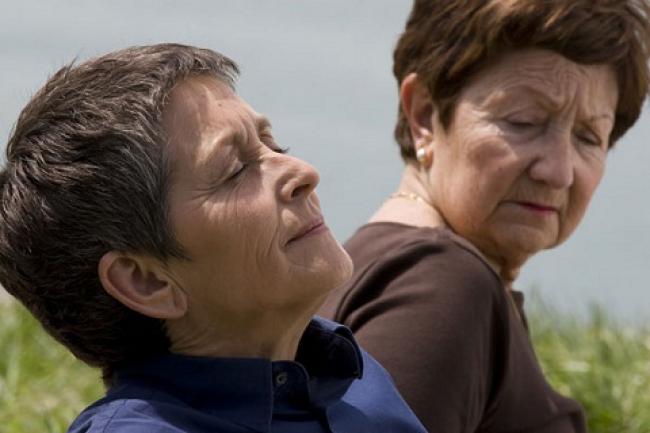Dr Katixa Agirre launching her book Sua falta zaigu
The seminar explored one of the most relevant phenomena in contemporary Basque literature: the advent, over the last decade, of a significant number of female authors to a male-dominated literary environment. For that purpose, Dr. Agirre prepared the following presentation:
Dr Agirre at the University of Birmingham.
1) Katixa Agirre started her talk accounting for the "late but fast" literary development that has taken place in the Basque Country over the last decades. According to Agirre's view, the lack of political unity or the existence of multiple dialects could be some of the reasons, among others, for the late emergence of Basque literature.
2) Dr Agirre summarised the history of Basque literature, pointing out the fact that Basque literary production did not become significant until the end of 19th century (only 101 books were published in almost 200 years, and only 4 of those works could be considered strictly "literary").
The girls are coming! Gender, youth and the new Basque literature
3) Katixa Agirre focused on the presence of female authors in Basque literature, offering a list of the most representative women who have written literary works in Basque, especially since 1947.
 4) Finally, she explained the main characteristics of the new wave of young female authors that have joined the Basque literary production since the beginning of this century.
4) Finally, she explained the main characteristics of the new wave of young female authors that have joined the Basque literary production since the beginning of this century.
If you were interested in the subject but were not able to attend the seminar, the video at the end of this post will allow you to get a general idea of Dr Katixa Agirre's work.
Dr. Katixa Agirre published her first book in 2007, Sua Falta Zaigu (Elkar), and the same year she published her first children's book Paularen Seigarren Atzamarra (Elkar). In 2007 she was awarded the Igartza grant to write the book Habitat, which was published in 2009.
This is the powerpoint presentation used by Dr Katixa Agirre.
3) Katixa Agirre focused on the presence of female authors in Basque literature, offering a list of the most representative women who have written literary works in Basque, especially since 1947.
 4) Finally, she explained the main characteristics of the new wave of young female authors that have joined the Basque literary production since the beginning of this century.
4) Finally, she explained the main characteristics of the new wave of young female authors that have joined the Basque literary production since the beginning of this century.If you were interested in the subject but were not able to attend the seminar, the video at the end of this post will allow you to get a general idea of Dr Katixa Agirre's work.




















